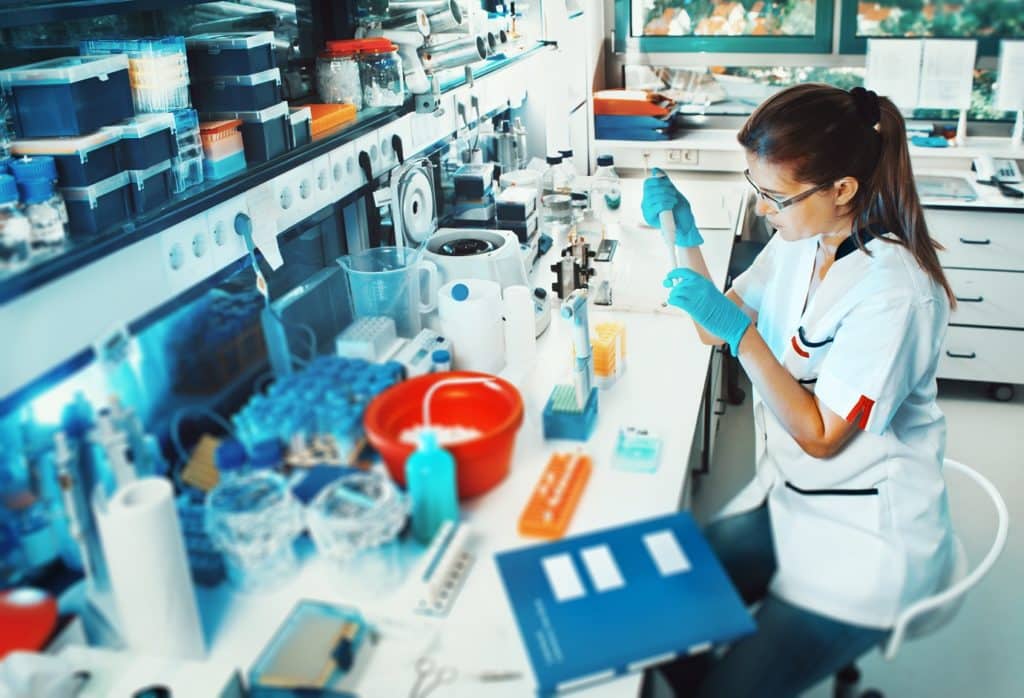Women will receive the same number of senior-level research Investigator Grants as men, under new targets set by the National Health and Medical Research Council (NHMRC).
The changes will begin in 2023, when a 50:50 funding target will be introduced to give more women in STEM the opportunity to undertake health and medical research at the senior level.
The Investigator Grant scheme is the NHMRC’s largest funding scheme, awarding around $370 million in research funding each year.
It provides a five-year fellowship and research support for researchers at all career stages. The new gender equity targets to be introduced will focus on the senior levels of the scheme, where women continue to face a significant gap in terms of advancing their careers and securing funding.
Between 2019 and 2021, male applicants to the Investigator Scheme received about 35 per cent more grants and 67 per cent more funding than female applicants, equating to a gap of about $95 million per year.
“We’ve known for a very long time that female researchers predominate at the earlier career levels of health and medical research, whether that’s the PhD, Post-Doc and early career levels, you will see in most institutes and universities, a majority of women undertaking that important research,” Health Minister Mark Butler said at a press conference on Wednesday.
“But for years and years now, from the mid-career level onwards, you see the presence of women start to steadily decline to the point where, at the very senior leadership level, women are vastly underrepresented and have been for many years, vastly underrepresented at the senior leadership levels.”
Butler said the research committee of the NHMRC has decided to divide the more senior levels of the Investigator Grant into two equal pools for men and women.
“What we are confident will happen as a result of that is that women researchers will have confidence that they are able to apply for these grants and have good chances of a positive outcome,” he said.
The initiative will introduce a new measure under the Sex Discrimination Act 1984 to set targets for an equal number of Leadership grants for women and men in the Investigator Grant scheme. Non-binary people will also be explicitly included in the measure.
Dr Jessica Borger, who has previously written about the gender bias in funding allocations for researchers, said the announcement resonated widely with women in the sector.
“Yesterday’s announcement by the minister represented so many things to women academics. It demonstrated that advocacy from a grassroots level can lead to fundamental change,” Dr Borger told Women’s Agenda.
“It resonated with women that not only were our voices heard but our votes counted in response to the NHMRC national consultations. It is inspiring to know that every single one of us contributed to national change, a change, as a mid-career friend (Dr Kim O’Sullivan, Monash University) said to me where ‘women researchers feel hope for the first time in a really long time’.”
Minister for Women Katy Gallagher said the initiative will play a significant role in driving gender equality at the highest levels of the health and medical research sector.
“These new funding targets will ensure that more women have the opportunity to contribute to the improvement of human health through their research and will inspire a new generation of researchers,” Gallagher said.
“We also know that if we continue on without making some sort of significant intervention, and we’ve seen this in a whole range of areas, that the pace of getting towards a fair share is just so slow.
“It’s a big change, but it’s an important change to encourage women into these fields to ensure that they feel that they will get a fair crack at opportunities, and to make sure that we are progressing gender equality across the board.”
Gallagher said it will make a “huge difference” in the careers of many women and will encourage young girls at school to consider a career in science because they’ll see “that they’ll get a fair crack at opportunities”.
Professor Dianna Magliano, a recipient of this year’s Investigator Grant scheme, said it’s no secret that working in research is a tough path, especially for women. Professor Magliano is from the Baker Heart and Diabetes Institute and will use her grant to understand trends in the burden, risks and complications of diabetes in Australia.
“As a researcher with 25 years working in the medical research industry, I can tell you, it has been a tough path,” she said.
“Inequities for women exist across many leverage points of a career in STEM, ranging from poorer success rates of grants, poorer success rates of promotions, and of course, there’s the salary gap.
“We need to address the systemic barriers of parental leave, carers leave, unconscious bias and other barriers. For women to achieve equity in senior scientific leadership levels, and to continue to aspire to these levels and to have sufficient visible role models, we need to do more.”
NHMRC CEO Professor Anne Kelso AO said an Investigator Grant can make all the difference to a researcher’s career.
“This is one of the reasons that gender equity in this scheme is so important if we are to build a diverse research sector,” Professor Kelso said.
“The changes announced today will provide more encouragement and opportunities for women and non-binary researchers to apply for, and win, these significant grants. With this support, we look forward to seeing better gender diversity at the most senior levels of Australian health and medical research in the years ahead.”


